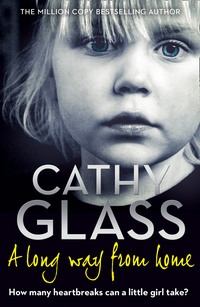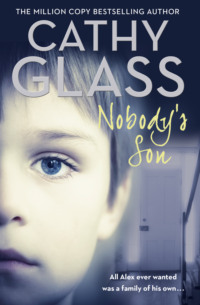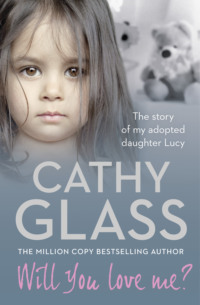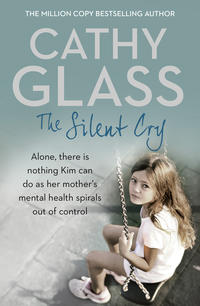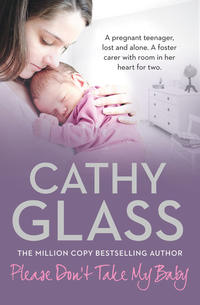
Полная версия
Innocent
‘What?’ I gasped. ‘He’s only eighteen months old. That makes a visit nearly every week!’
Tess nodded sombrely. ‘Questions will be asked as to why the social services weren’t involved sooner. True, many of the previous visits were for ailments and minor injuries, but even so. Aneta was turning up regularly, saying the child had tripped and fallen, was sick, had ingested something they shouldn’t, had a cough, rash or high temperature. She was clearly anxious about her children’s health, but it was only on Monday when it was found that Kit had a broken arm that the history of her visits was thoroughly reviewed and the alarm raised. Now it seems similar had been going on at their doctor’s. I’m applying for the children’s medical records, but the doctor I spoke to said that Aneta was there most weeks – first with Molly and then with Kit. Her visits with Molly were initially put down to new-mother anxiety. It’s not unusual for first-time mothers to be anxious about their baby’s health and to keep seeking medical advice about minor ailments. But it continued with Kit and then the term “accident prone” started to be used. However, the children always appeared clean and Aneta was very attentive towards them. They were quiet while in the doctor’s and well behaved.’ She let out another heart-felt sigh. ‘Kit’s injury on Monday, plus the record of accidents for both children, crossed the threshold, so we felt they were at risk of significant harm and applied for the care order.’
‘And it’s a hundred per cent certain the injuries the children sustained were non-accidental?’ I asked.
‘You can never be a hundred per cent sure, but it is the most likely explanation and the judge agreed with us.’
I gave a small nod and sincerely hoped they were right, for the alternative – that the parents had been wrongly accused and had lost their children – was too awful to bear. ‘And contact?’ I asked. ‘Kit and Molly will be seeing their parents?’
‘Yes. I’ll set up supervised contact, probably three times a week to begin with.’
‘And the long-term care plan?’
‘A full care order. I can’t see them returning home.’
When Tess had finished telling me what she knew about the family we returned to the living room where Paula, Preeta and the children were still on the floor by the toy box. Kit now had a toy shaker in his hand, but neither child was playing. Molly had her thumb in her mouth and was snuggled close to her brother. The room was unnaturally quiet considering two children were there, but at least they weren’t crying.
‘We’ll just have a look around and go,’ Tess said to Preeta. Then to me, ‘Do you have everything you need for tonight?’ She crossed to the patio window and looked out.
‘Yes, I think so,’ I said.
‘Nice garden,’ she remarked, then went over to Molly and Kit. ‘We’re going to look at the other rooms now. Would you like to come and see where you are going to sleep?’
Kit kept his eyes on Paula, carefully watching her to see what she was going to do, while Molly had her head down, quiet, withdrawn and expressionless.
‘Would you like to come with us to see your bedroom?’ I tried, offering my hand to Molly. She shook her head, which was at least some response. ‘OK, stay here, you’ll see it later,’ I said positively. While it was usual for the children to look around the house with their social worker when they first arrived – or before, if it was a planned move and they had a chance to visit – it wasn’t essential, as it was for the social worker.
‘I’ll stay with them while you go,’ Preeta said to Tess.
Tess nodded.
‘This is the living room,’ I said to everyone. ‘It’s where we spend most of our time in the evenings and weekends.’ Tess then came with me into the kitchen-diner where I’d already put the children’s seats ready at the table. ‘Do you know if either of the children has any special dietary requirements?’ I asked her as she looked around.
‘No, I don’t. I’ll ask their father when I speak to him later and phone you.’
‘Can you also ask him if they have any allergies?’ It was worrying how little I still knew about the children, and I was responsible for them now.
‘Will do,’ Tess said. ‘Apparently their mother often told the doctor she thought the children were suffering from allergies, but they changed on each visit, so if the child had a slight rash, upset tummy or cough, Aneta put it down to an allergy.’
‘The doctor didn’t agree?’
‘I don’t think so, but I’ll check with the father.’
‘I’ve made a cottage pie for dinner. I hope that’s all right,’ I said. ‘I assume Kit is on solid food?’
‘I would think so at his age,’ Tess said. She sniffed the air. ‘I thought I could smell something good. I’ll ask about food when I phone Filip. He wasn’t in any state to talk about that this afternoon.’
‘Please also ask him about any likes and dislikes the children may have, and their routine,’ I added. While Molly was old enough to tell me what she liked or didn’t like – when she finally began to talk – Kit wasn’t, so it was important Tess found out as much as she could from the parents. I couldn’t do anything about the children actually being in care, but I could at least make their lives as comfortable as possible while they were with me.
‘Do you want to see down the garden?’ I asked Tess. She was looking through the window at the far end of the kitchen, which overlooked the back garden.
‘No, I can see it from here. Let’s have a quick look at the children’s bedrooms and then we’ll need to get going.’
I looked at her, concerned. ‘Bedroom,’ I said. ‘I hope Edith told you I only have one spare room. I’ve put a cot in there so the children will be sleeping together.’
‘Yes, that’ll be fine,’ she said, and we headed out of the kitchen-diner and down the hall. It was still very quiet in the living room. No sound of the children talking or playing. I didn’t show Tess the front room as we’d just been there, so we went upstairs to the children’s bedroom. ‘There’s not much space, but they can play downstairs,’ she said, voicing her thoughts. ‘It’s nice and light. How long have you been fostering?’
‘Twenty-five years.’
She nodded and headed out. I quickly showed her the other bedrooms and bathroom. ‘You’ll need to cover Kit’s plaster to keep it dry when you bath him,’ she said.
‘Yes, is there a follow-up appointment at the hospital?’
‘I would think so. I’ll ask Filip.’
We returned downstairs. Sammy, our cat, must have let himself in through the cat flap, for he was now sitting in the hall, trying to decide if it was advisable to go into the living room with strangers there.
‘Hopefully, the children aren’t allergic to cat fur,’ Tess remarked as we passed him.
‘I hope so too!’ For if they were, there was little I could do beyond what I did already: keep Sammy out of the bedrooms, comb him each day and regularly hoover. I couldn’t make him disappear.
‘You’ve got a nice bedroom,’ Tess told Molly and Kit as we entered the living room.
Molly looked at her, worried and confused. Suddenly she jumped up from where she was sitting on the floor and cried, ‘I need a wee!’ But it was too late. A puddle formed at her feet. She burst into tears.
‘It’s OK, don’t worry,’ I said, immediately going to her. ‘I’ll mop it up and we’ll find you some more clean clothes.’
‘We’ll leave you to it,’ Tess said. ‘I’ll phone you as soon as I’ve spoken to their father.’
She and Preeta said goodbye to the children and headed out.
‘Don’t forget the suitcase in your car!’ I called after them.
‘I’ll leave it in the hall,’ Tess replied.
Seeing his sister upset, Kit now began to cry loudly. They both needed comforting, Molly needed changing again, and I had to mop up the wet before it soaked into the carpet. I heard Tess and Preeta open the front door and then my daughter Lucy’s voice. She must have been about to let herself in. ‘Hi,’ she said, surprised. Then, ‘What a noise!’
‘In here, Lucy, please!’ I called. ‘We could do with your help.’
She came into the living room and, surveying the chaotic scene, threw her jacket onto a chair. ‘And I thought I’d left work!’ she exclaimed with a smile. She was a qualified nursery nurse.
‘Meet Molly and Kit,’ I said over their cries. ‘Can you help Paula calm them down while I get a bucket and cloth?’
‘Come on, it’s OK,’ she said, taking Molly’s hand. Paula was holding Kit. I went quickly into the kitchen where I ran hot water into a bucket and added disinfectant. I took a cleaning cloth from the cupboard under the kitchen sink and returned to the living room.
‘I’m leaving the case here!’ Tess called from the hall. ‘Everything OK?’
‘Yes,’ I replied. I knew they needed to go. The front door closed behind them.
I knelt down and set to work on the carpet. ‘Shall I change Molly?’ Lucy offered.
‘Yes, please. Hopefully there is a change of clothes in the case in the hall.’
‘I’ll take the case upstairs with me.’
‘Thanks, love.’
Having seen his sister disappear, Kit began to cry more loudly and point towards the door. ‘Best go with them,’ I told Paula. She carried Kit out of the living room and joined Lucy and Molly in the hall as I continued to clean the carpet.
At the same time I heard the front door open and my son, Adrian, call, ‘Hi, Mum!’
Then Paula’s voice, ‘Hi, how are you, Kirsty?’
Oh no, I thought. We were hardly prepared for visitors. Kirsty was Adrian’s long-term girlfriend and I really liked her, but she’d walked into chaos. He usually let me know when he was bringing her home for dinner. ‘Hi, Mum. Kirsty’s here. Did you get my text?’ he called from the hall.
‘I expect so,’ I said, still on my knees. ‘I haven’t had a chance to check my phone. Come through.’
He appeared in the living room with Kirsty just behind him. ‘A little accident,’ I said, glancing up and smiling grimly. ‘Nearly done. Nice to see you, Kirsty. How was school?’ She was a teacher.
‘They had to switch off the water to repair a burst pipe so we were given the afternoon off.’
‘Very nice,’ I said. I patted the patch dry and stood. The crying upstairs had stopped.
‘Kirsty and I can eat out, Mum,’ Adrian offered.
‘No, It’s fine. I’ve done plenty. We’ll eat soon. As you saw we’ve got two little ones come to stay.’
‘Is there anything I can do to help?’ Kirsty kindly offered.
‘No. Make yourselves a drink. I’ll check on Kit and Molly and then we’ll have dinner.’
Adrian took the bucket into the kitchen to tip away the water and put the cloths in the washing machine, while I went upstairs to see how Lucy and Paula were getting on. My daughters were my nominated carers. Foster carers are encouraged to nominate one or two family members or close friends to help them out and babysit when necessary. They are assessed by the carer’s supervising social worker for suitability, and police-checked (now called a DBS check – Disclosure and Barring Service). Lucy had the added advantage of being a nursery nurse and the experience of being in care herself. She’d come to me as a foster child, stayed, and I’d adopted her. It was as if she’d always been my daughter.
‘How’s it going?’ I asked as I went into Kit and Molly’s bedroom. It was cramped now with Lucy, Paula, Kit and Molly all in there and the case open on the floor. The girls had found a dress for Molly, and Lucy was now helping her out of her wet clothes. There appeared to be a change of clothes in there for Kit too, pyjamas, some socks and a soft toy each, but nothing much else. The soft toys would be useful. Kit had spotted his and was now trying to get to it.
I smiled and took the toy from the case and gave it to him. He snuggled his face against its soft velvety fabric. I took out the other soft toy, which I assumed was Molly’s, and placed it on her bed. Similarly styled, it had big loving eyes and soft fur. Hopefully, having these would bring comfort to the children when they had to sleep in a strange room tonight.
‘We’re doing OK here, Mum,’ Lucy said as she changed Molly’s clothes.
‘Thanks. I’ll go and see to dinner. Come down when you’re ready, please.’
I gathered up Molly’s wet clothes and went downstairs, where I put them in the washing machine with her other soiled clothes and the floor cloths, and set it on a wash-and-dry program. Kirsty came into the kitchen. ‘Adrian’s gone to change out of his suit. Can I help you?’
‘You could lay the table, love. You know where everything is. There’s a child’s cutlery set for Molly in that drawer, and a toddler spoon for Kit. I don’t know if he can feed himself, but he’ll struggle anyway with the plaster on his arm.’
‘I didn’t know they were coming,’ Kirsty said as she opened the cutlery draw. ‘Are you sure it’s OK for me to stay?’
‘Yes, of course.’ I smiled. ‘I didn’t know they were coming either until this morning. It’s an emergency placement.’
‘What happened to Kit’s arm? And he’s got bruises on his face.’
‘He took a tumble down the stairs,’ I said.
‘Oh dear.’ She knew I couldn’t say much more because of confidentiality.
As she laid the table she told me about a boy in her class whose family was having help from the social services. While Kirsty and I would never break confidentiality by divulging names or discussing the details of cases like this, as a young teacher she sometimes shared her worries with me. If a child kept arriving at school dirty, late and hungry, or had unexplained injuries, she sometimes mentioned it as well as informing her head teacher. Teaching is now so much more than simply imparting knowledge; it involves a large pastoral role too.
Adrian, Paula, Lucy and the little ones all came down together with Adrian now carrying Kit. As Adrian sat Kit in his seat at the table and fastened the belt, I had the briefest glimpse of what a good father he’d make when the time came. I think Kirsty did too, judging from the look in her eyes. We settled around the table and I served dinner. I’d just sat down to eat when the house phone rang.
‘I’ll take it in the living room,’ I said, standing. ‘It’s probably their social worker.’
It was. ‘I’ve spoken to Filip,’ Tess said. ‘He doesn’t think the children have any allergies, although Aneta worries about them a lot. He’ll tell you more tomorrow. I’ve set up a meeting for one o’clock at the council offices so the parents can meet you. If you have any questions, you will be able to ask them then.’
‘OK. I take it I’m not to bring Molly and Kit to the meeting?’
‘No. I’ll be arranging supervised contact at the Family Centre for the children to see their parents.’
‘All right, thank you. I’ll have to get some cover for Molly and Kit.’
‘How are they?’ Tess asked.
‘Having a bit of dinner.’
‘Good. See you tomorrow then.’
I scribbled 1 p.m. in my diary for the following day. I would need to find someone to look after Kit and Molly at very short notice. Lucy would be at work and Paula at college, and I didn’t feel I could ask them to take time off. I knew other foster carers who could help me out as I had helped them in the past, but that would need to be arranged through Edith, my supervising social worker. I couldn’t just do it by myself. I made another note in my diary to call Edith at 9 a.m. the next morning, and then returned to the dinner table.
Chapter Three
Disturbed Night
Molly and Kit were quiet and subdued throughout dinner. They looked very sad and showed none of the natural exuberance you’d expect from children of their age, which was hardly surprising. Their world – the one they’d always known – had just come to an abrupt and traumatic end. They’d been taken from their hysterical mother in tears and had lost the only family they’d known and everything they held dear. Only in the worst cases of abuse had I ever seen a child happy to be in foster care, to begin with at least. It would take time, love, care, patience and lots of reassurance before they began to relax and were able to trust and smile again.
With encouragement from Lucy and me, Molly fed herself, while Paula and I – we had Kit sitting between us – popped spoonfuls into his mouth. Both children ate a little of the main course but didn’t want any apple crumble and custard for dessert. I didn’t know if Kit could feed himself. Apart from being hampered by the plaster cast, he was clearly too overwhelmed to make any attempt, and it didn’t matter. If the children were staying with us long term, as Tess seemed to think, there’d be plenty of time to teach him to feed himself. That was the least of my concerns at present. It was eight o’clock by the time we’d finished and I needed to bath the children and get them into bed.
Paula apologized and said she had college work to do. I thanked her for her help, and she went upstairs to her bedroom. Lucy offered to help bath Kit and Molly, and Adrian and Kirsty said they’d clear away the dishes and wash up. I was grateful for their help. I was already worrying about how I was going to manage alone tomorrow when everyone was out. You’ve done it before and you can do it again, I told myself as another crisis of confidence loomed.
I thought it would be easier to bath the children separately to avoid Kit’s plaster becoming wet. However, it was clear that Molly didn’t want to be separated from her brother, so she came with Lucy, Kit and me into the bathroom. Lucy and I talked brightly to both children, trying to put them at ease, as we explained the bedtime routine and what we were doing. Kit just stood there as I undressed him, then put a plastic bag over his plaster cast and secured it at the end. Most toddlers would have shown some interest, perhaps laughed or tried to pull off the bag, but he stared at me, wide-eyed and lost. It broke my heart.
I carefully lifted him into the bath. He was heavy with the weight of the plaster cast. ‘Sit down, love, but try to keep your arm out of the water,’ I told him. ‘We need to keep it dry.’
Neither child spoke. Molly was holding Lucy’s hand and watched in silence as I gently wiped Kit’s bruised face with a facecloth, and then sponged his little body. His skin was pale and he had some bruises on his shins and one on his other forearm, but I couldn’t see any other marks – scars, cuts or cigarette burns, as I’d seen before on children I’d fostered. I’d let Tess know, although of course the bruises could have been from playing. Toddlers are always tripping, falling and bumping into things as they explore their surroundings with little sense of danger.
Once washed, I lifted Kit out of the bath and into the towel Lucy held out ready. I took the plastic bag from his arm and Lucy dried him as I bathed Molly. Children of her age can usually wash themselves a little, so I gave her the sponge and she drew it across her chest and legs. I washed her back. Her skin was pale too and she had one small bruise on her shin, which I’d noticed before when I’d changed her and was likely to be the result of a fall while playing. Thankfully there were no other signs of injury. I helped her out of the bath, wrapped her in a towel and then dressed her in the pyjamas I’d taken from their case. Lucy had dressed Kit and put a nappy on him. Both children had clean hair, so hair-washing could wait until another night when they felt more at ease.
We hadn’t found any toothbrushes in their case, so I was using some from my spares. I always kept a supply of new children’s toothbrushes, face flannels, pants and so on. Kit opened his mouth to allow Lucy to brush his teeth – he had his front teeth, top and bottom, and some molars coming through at the back. Clearly from the way he cooperated he was used to having his teeth brushed – a sign that the children had received some good parenting. Once Lucy had finished brushing Kit’s teeth, I put a little toothpaste on Molly’s toothbrush and passed her the brush.
‘Can you give your teeth a little brush?’ I asked her.
She took the brush and made a small attempt to clean her teeth, then burst into tears. ‘I want my mummy!’ she cried. ‘Mummy, Mummy, where are you? I want you.’
It was heart-breaking and I felt my own eyes fill.
‘Oh, love,’ I said, taking the toothbrush and putting it to one side. ‘You’ll see Mummy soon.’ I held her.
‘I want my mummy,’ she wept inconsolably. ‘Where is she?’
‘She’s at home, love.’
‘I want to go home.’
I wasn’t surprised she was distraught now. She’d been bottling it up since she’d arrived and, now she was tired, it was all coming out. Kit, seeing his sister in tears, began to cry too. Lucy cuddled him as I cuddled Molly. We sat on the bathroom floor, gently rocking them and telling them it would be OK and trying to console them. Not for the first time since I’d begun fostering, I wished I had a magic wand I could wave that would undo the past and make everything bad that had happened go away.
Eventually the children’s crying eased. ‘Come on, let’s get you both into bed,’ I said, and stood. ‘You’ll feel better after a night’s sleep.’ It was a reassurance in which I had little faith. It would take many nights before they began to feel better. Lucy held Kit’s hand and I held Molly’s and we went round the landing to their bedroom.
As soon as we entered the room Molly became upset again. ‘I want my mummy,’ she cried, her tears flowing.
‘I know you do, love,’ I said. ‘You’ll see Mummy soon.’ I helped her into bed, wiped her face, and then sat on the edge of the bed.
‘I want Mummy now,’ she said again and again, grief-stricken.
‘Mummy, Mummy,’ Kit said from his cot as Lucy tried to settle him.
‘Would you like a bedtime story?’ I asked Molly, trying to distract her. She shook her head and just sat in bed, tears rolling down her cheeks. ‘Come on, love, lie down and try to get some sleep.’ I wiped her cheeks again.
She laid her head on the pillow, Kit lay down too, then, as Molly pressed her face into her cuddly toy, Kit did the same. His cot was adjacent to Molly’s bed – against the opposite wall – so he could see her through the slats. ‘Does your cuddly have a name?’ I asked her.
‘I want Mummy.’
‘Mummy,’ Kit repeated.
I began stroking Molly’s forehead, trying to soothe her off to sleep. Lucy was leaning over the cot and gently rubbing Kit’s back.
‘Lucy, you go, love, if you want to,’ I told her after a few minutes. ‘I’ll stay with them.’ I was mindful that she had come in straight from work and hadn’t had a minute to herself.
‘It’s OK, Mum. I’ll stay until they’re asleep.’
‘Thanks, love, I am grateful.’
For the next half an hour Lucy and I stayed with the children, Lucy by Kit’s cot and me with Molly, soothing them, until eventually, exhausted, their eyes gradually closed. We waited another few minutes to check they were asleep and then crept from the room. With older children I usually ask them on their first night how they like to sleep – the curtains open or closed, the light on or off, the bedroom door open or shut, as it’s little details like this that help a child settle in a strange room. But for now we left the curtains slightly parted, the light on low and the door open so I could hear them if they woke.
I thanked Lucy again for her help and she went to her bedroom. I cleared up the bathroom and took Kit’s nappy downstairs to dispose of it. Adrian was in the kitchen, making himself a drink. ‘Kirsty has gone home as we both have to be up for work in the morning,’ he said. The kitchen was spotless.
‘Thanks for your help,’ I said. ‘I’m sorry I didn’t get a chance to talk to Kirsty.’
‘She understands. She said to say good luck.’
‘I think I’m going to need it.’
Adrian made me a cup of tea and I took it with a couple of biscuits into the living room to write up my log notes, while he went up to shower. All foster carers in the UK are required to keep a daily record of the child or children they are looking after. It includes appointments, the child’s health and wellbeing, education, significant events and any disclosures the child may make about their past. As well as charting the child’s progress, it can act as an aide-mémoire. When the child leaves this record is placed on file at the social services. Opening my folder, I took a fresh sheet of paper and headed it with the date. I wrote a short objective account of Molly and Kit’s arrival and their evening with us. I was just finishing when I heard a bang come from Molly and Kit’s room. I shot upstairs. Paula had heard it too and had come out of her room and was on the landing. ‘Whatever was that?’ she asked, concerned.


